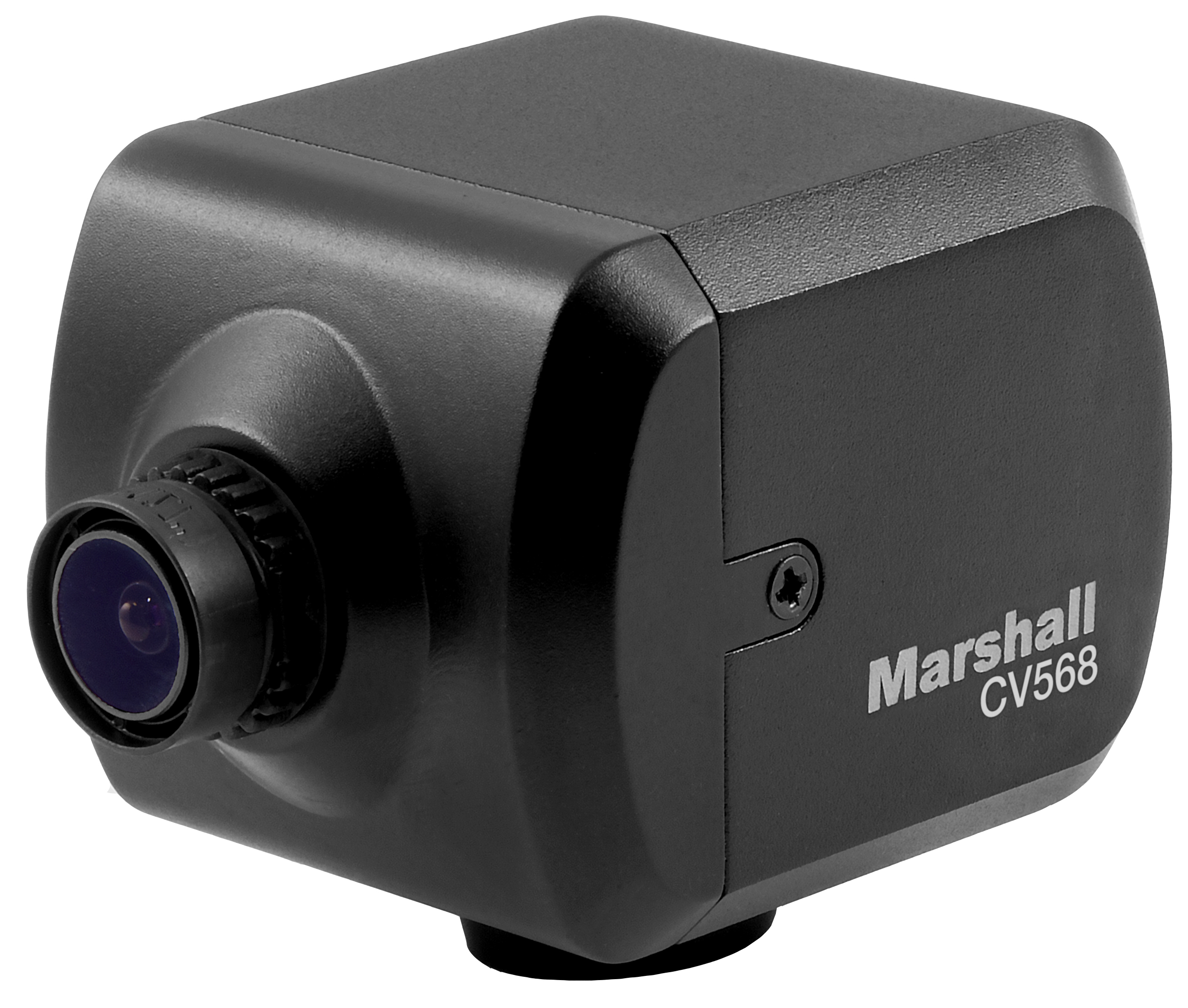CV568 and CV368 Cameras Produce Crystal Clear Images in a Wide Variety of Pro AV Conditions
TORRANCE, CA ̶ Marshall Electronics launches its CV568 and CV368 POV Global Shutter Cameras with Genlock, ideal for sportscast, racing, eSports, remote production, or any application that requires high speed or low light capture. These two new camera models will be available for purchase later this month, beginning June 30, 2021.

The CV568 and CV368 POV camera models offer an impressive 1/1.8” Global Shutter 3.2MP sensor and 25 percent larger pixel size, for ultra-fast, low latency capture even in low light environments. The CV568 Miniature HD Camera is built into the same durable miniature sized body as other Marshall CV503/CV506 cameras, and have rear panel protection, interchangeable M12 lenses, secure locking connections and remote adjust/match features. The CV368 Compact HD Camera follows the same body design as the CV344/CV346 cameras with slightly larger CS mount lens type and a wide variety of variable and fixed lens options available. The similarity stops there as the CV568/CV368 models pack a much larger, more powerful Global Shutter sensor with Genlock (signal-sync), producing crystal clear images at affordable price points.
“POV Global Shutter cameras are nothing new to the broadcast pro AV industry, however when our customers are challenged to capture ultra-fast motion within the field-of-view, motion anomalies become more of a challenge,” says Tod Musgrave, Director of Cameras, Marshall Electronics. “Global Shutter sensors perform better in these environments as all pixels are exposed simultaneously. Rolling Shutter sensors roll through the sensor array in sequence (usually top to bottom), which can cause warping or motion blur in extreme speed environments. This is not to say one is better than the other, each play a role and have a purpose in video production.”
The CV568 and CV368’s tri-level sync allows multiple cameras to be plugged into HD workflows already in sync (genlock), which enables seamless transitions between cameras with minimal amount of delay. Tri-level sync runs at higher frequency making the signal sync more accurate and more seamless.
“Marshall is committed to offering broadcast quality camera solutions in various form factors with features that matter to our professional users while maintaining affordable price points,” adds Musgrave. “These two new camera models are an excellent addition to the line, as we continue to expand our product portfolio.”
